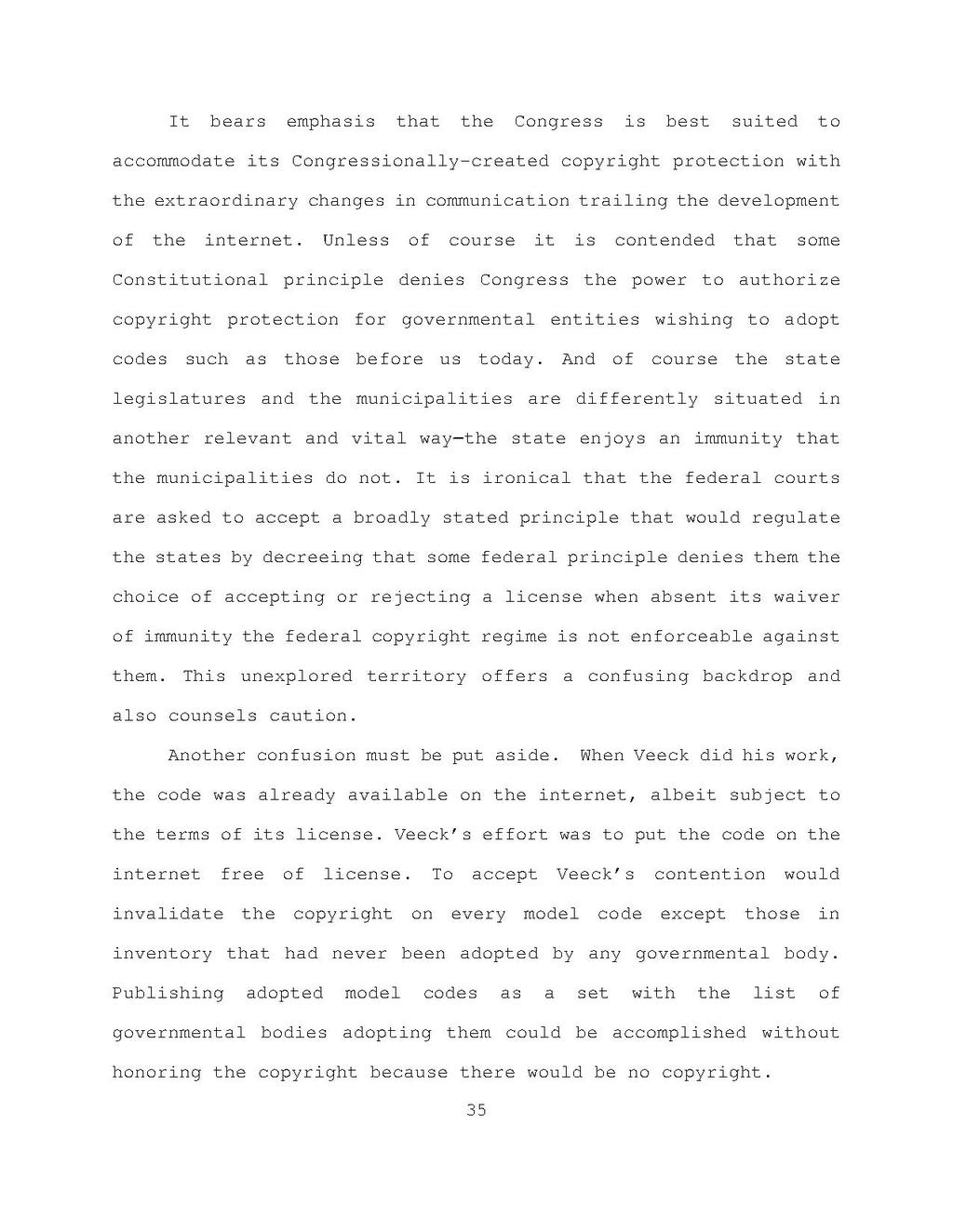It bears emphasis that the Congress is best suited to accommodate its Congressionally-created copyright protection with the extraordinary changes in communication trailing the development of the internet. Unless of course it is contended that some Constitutional principle denies Congress the power to authorize copyright protection for governmental entities wishing to adopt codes such as those before us today. And of course the state legislatures and the municipalities are differently situated in another relevant and vital way—the state enjoys an immunity that the municipalities do not. It is ironical that the federal courts are asked to accept a broadly stated principle that would regulate the states by decreeing that some federal principle denies them the choice of accepting or rejecting a license when absent its waiver of immunity the federal copyright regime is not enforceable against them. This unexplored territory offers a confusing backdrop and also counsels caution.
Another confusion must be put aside. When Veeck did his work, the code was already available on the internet, albeit subject to the terms of its license. Veeck's effort was to put the code on the internet free of license. To accept Veeck's contention would invalidate the copyright on every model code except those in inventory that had never been adopted by any governmental body. Publishing adopted model codes as a set with the list of governmental bodies adopting them could be accomplished without honoring the copyright because there would be no copyright.
35
